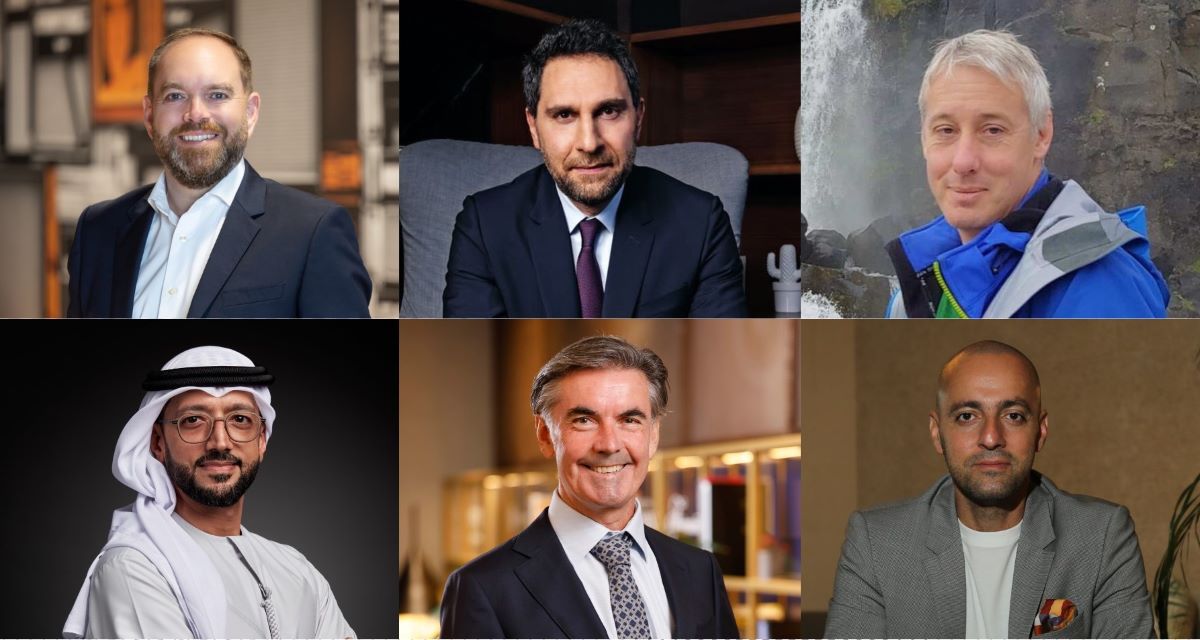The Future Hospitality Summit (FHS) 2023 kicks off at the Hilton Abu Dhabi Yas Island, September 25-27. ESG and sustainability-related discussions are high up on the action-packed agenda.
2023 was labeled the UAE Year of Sustainability, and COP 28 is taking place in Dubai this winter.
In the run up to FHS, five industry stakeholders have shared their views on what the sector is already doing and what must be done in the future when it comes to investing in, developing and executing effective ESG strategies.
ESG strategies
Haitham Mattar, Managing Director, IMEA, IHG Hotels & Resorts, said: “With a massive footprint across the globe, the tourism and hospitality sectors play an important role in working towards a sustainable future.”
Richard Williamson, COO, Considerate Group, said: “ESG interest and investment by the hospitality sector is definitely picking-up pace, with ESG now a significant part of the agenda at events at conferences such as FHS.”
Fahad Abdulrahim Kazim, CEO, Millennium Hotels & Resorts, said: “The hospitality industry’s investment in ESG and sustainability is becoming increasingly robust and essential. We are witnessing a significant shift as more hotels and resorts recognize the long-term benefits of incorporating ESG considerations into their business strategies. This investment is evident in the adoption of energy-efficient technologies, waste reduction initiatives, community engagement programs, and responsible sourcing practices.”
Paul Stevans, Chief Operating Officer, Premium, Midscale & Economy Division, Middle East, Africa and Türkiye at Accor, said: “As climate change increases with each passing year, more and more travelers are choosing hotels that prioritize environmentally sustainable practices and sustainable hospitality is becoming the norm. ESG practices are no longer optional; they have evolved into essential requirements for staying competitive, attracting guests, and maintaining long-term viability.”
Elie Milky, Vice President, Business Development, Radisson Hotel Group, said: “The hospitality industry’s commitment to ESG and sustainability has grown exponentially in recent years.”
Read: Visa free travel to the UAE from 82 countries
Biggest priority for sustainable development and operations
Haitham Mattar said: “As the largest industry in the world that contributes 10 percent to the world’s GDP, green tourism and skill recruitment and development are two of our biggest priorities when it comes to sustainable development and operations.
Richard Williamson said: “Hotels are complex businesses, and we are finding that the quality and flow of data from hospitality assets to owners is lagging behind the broader real estate sector. Multi-asset owners want a consistent quality of data and a global perspective of their portfolio to allow them to benchmark asset performance. This remains the industry’s biggest challenge. Challenges that lie ahead in the near future include measurement and quantification of the social aspects of ESG and the inclusion of biodiversity into the overall equation.”
Fahad Abdulrahim Kazim: The biggest priority for our industry in sustainable development and operations is striking the right balance between exceptional guest experiences and minimizing our environmental footprint. It’s crucial to seamlessly integrate sustainable practices into every aspect of our operations while continuing to provide top-notch service and innovative offerings.
Paul Stevans said: “Among the key environmental ESG areas, the reduction of greenhouse gas emissions from construction to daily operations is a priority.
Elie Milky said: “While all facets of sustainability are essential, the most pressing priority for our industry is the need to address our environmental footprint, given the scale and nature of our operations. This includes reducing carbon emissions, minimizing waste, and conserving resources.
Main challenges facing the development and execution of ESG strategy
Haitham Mattar said: “One is the lack of standardization. Industry-level standards are pivotal to mandate across different areas of sustainability.
Additionally, through sustainability policies and regulations, we will be better able to enable quicker adoption of new technologies and renovations that allow carbon monitoring and reporting, and other active and passive measures.”
Richard Williamson said: “Hotels remain complex environments, incorporating accommodation, restaurants, bars, laundry and more. Ownership and management contracts are also often multi-layered. This complexity means that often no one party has absolute control of the asset and implementing an ESG strategy across diverse portfolios of hotels with multiple stakeholders. Conflicting interests and priorities can be extremely challenging.
Fahad Abdulrahim Kazim said: “The main challenges faced are to deliver quality service and support continuously and consistently to guests and employees while keeping the environmental impact at a minimum. Guests explicitly look for brands prioritizing sustainability. This includes energy-saving measures, waste reduction initiatives, the use of renewable resources, and community and environmental conservation engagement.
Paul Stevans said: “There are intricate challenges facing the sector, including striking a balance between providing an unwavering guest experience and implementing sustainable practices. This necessitates innovative solutions. Nevertheless, the strategies are not one-size-fits-all solutions, as each destination possesses its own unique challenges and opportunities, demanding a customized approach.”
Elie Milky said: “The vastness and diversity of the industry make universal solutions difficult, as practices must cater to different regions, cultures, and regulations. There’s often a substantial upfront cost for sustainable technologies, making it challenging for smaller properties or those in constrained areas. Changing the behavior patterns of both staff and guests to align with sustainability goals can be complex. Furthermore, accurate data collection for assessing impact needs to be more standardized, complicating progress measurement.”
For more on travel and tourism, click here.








